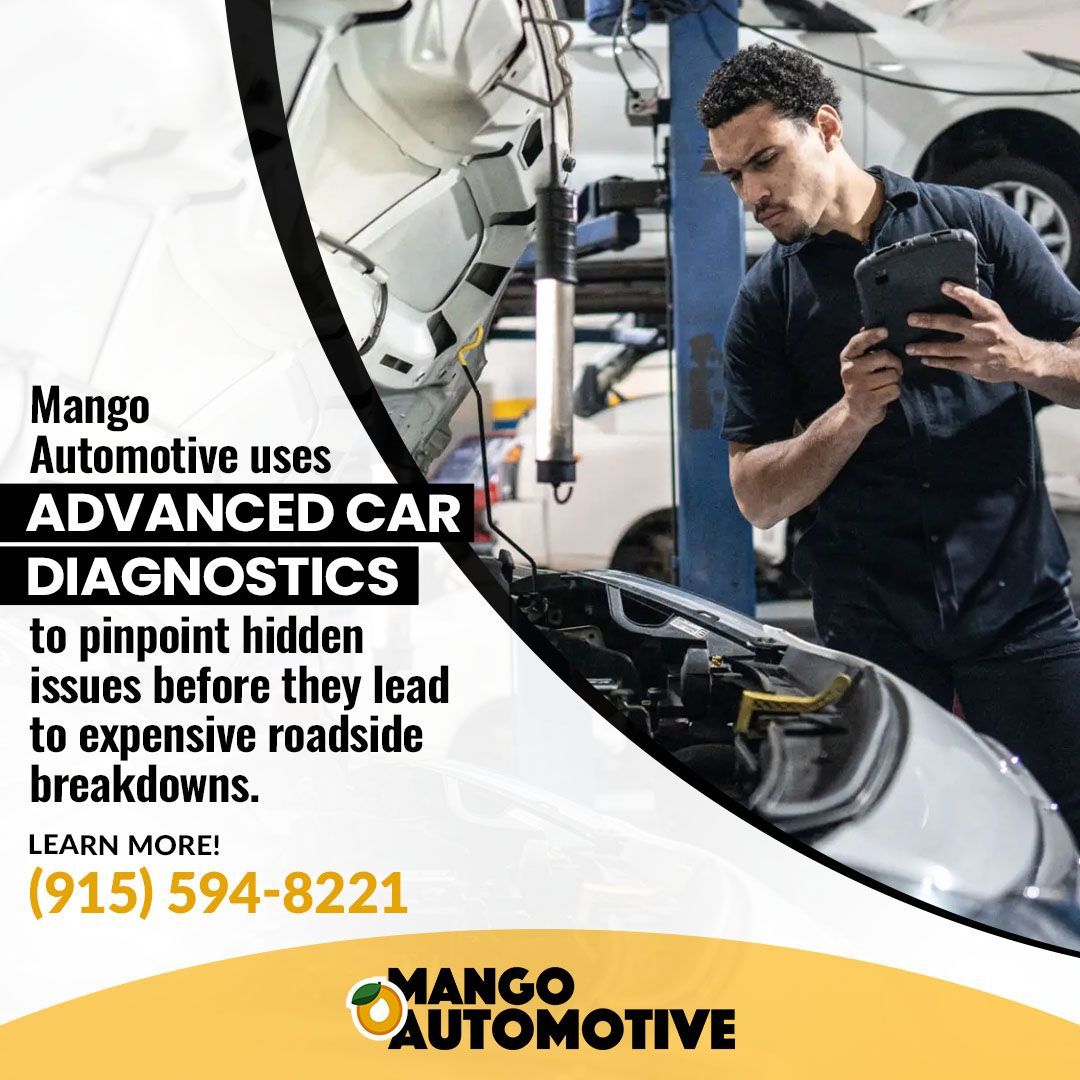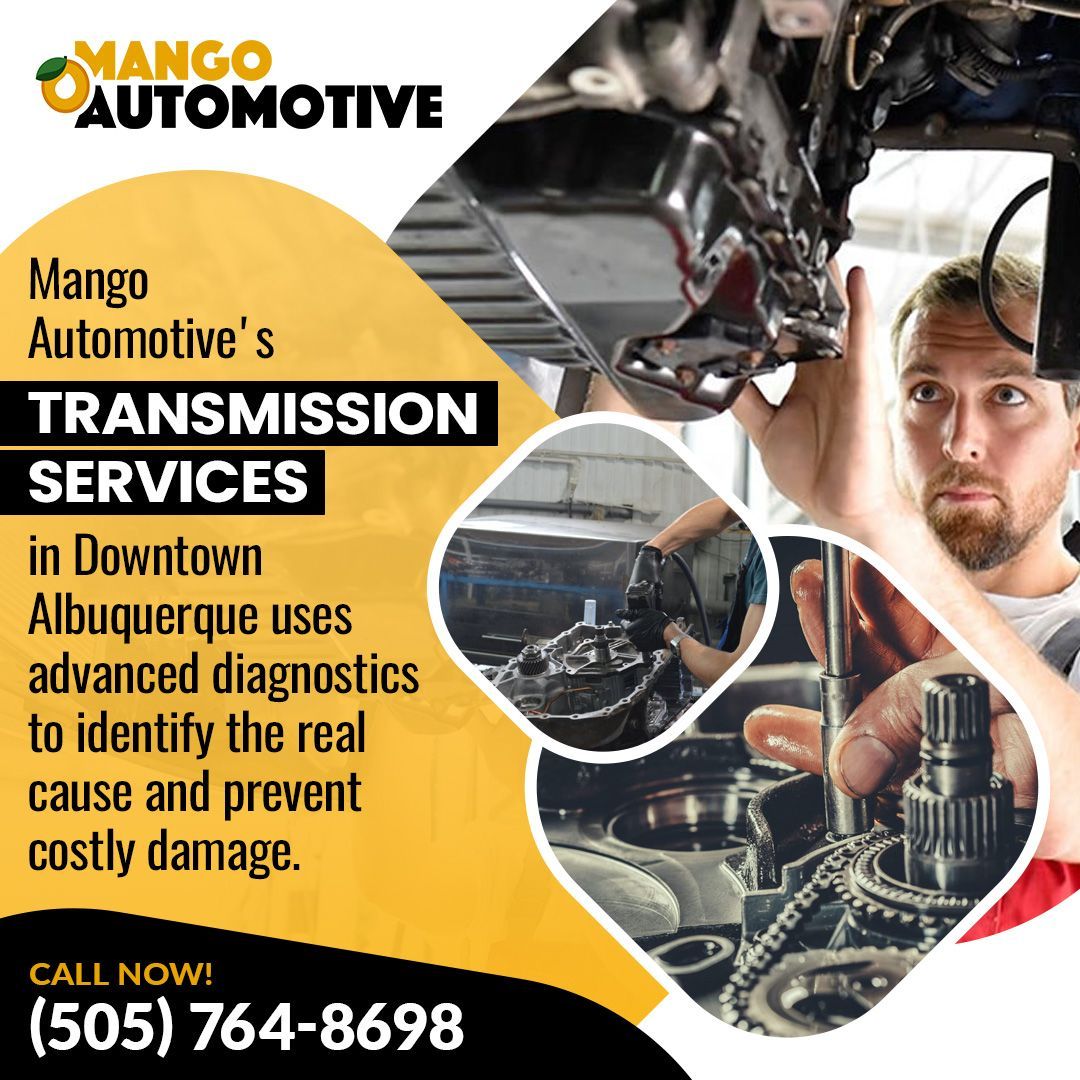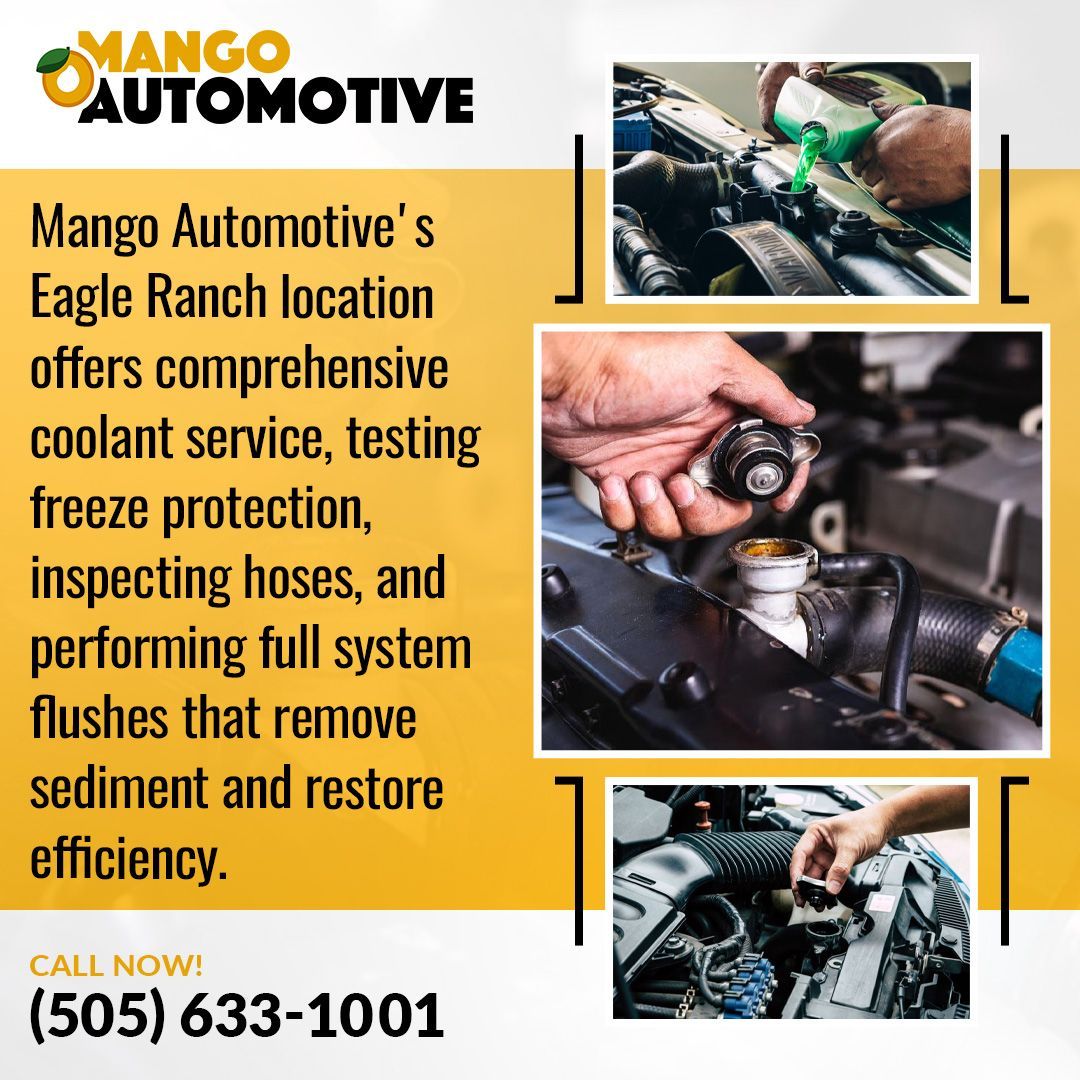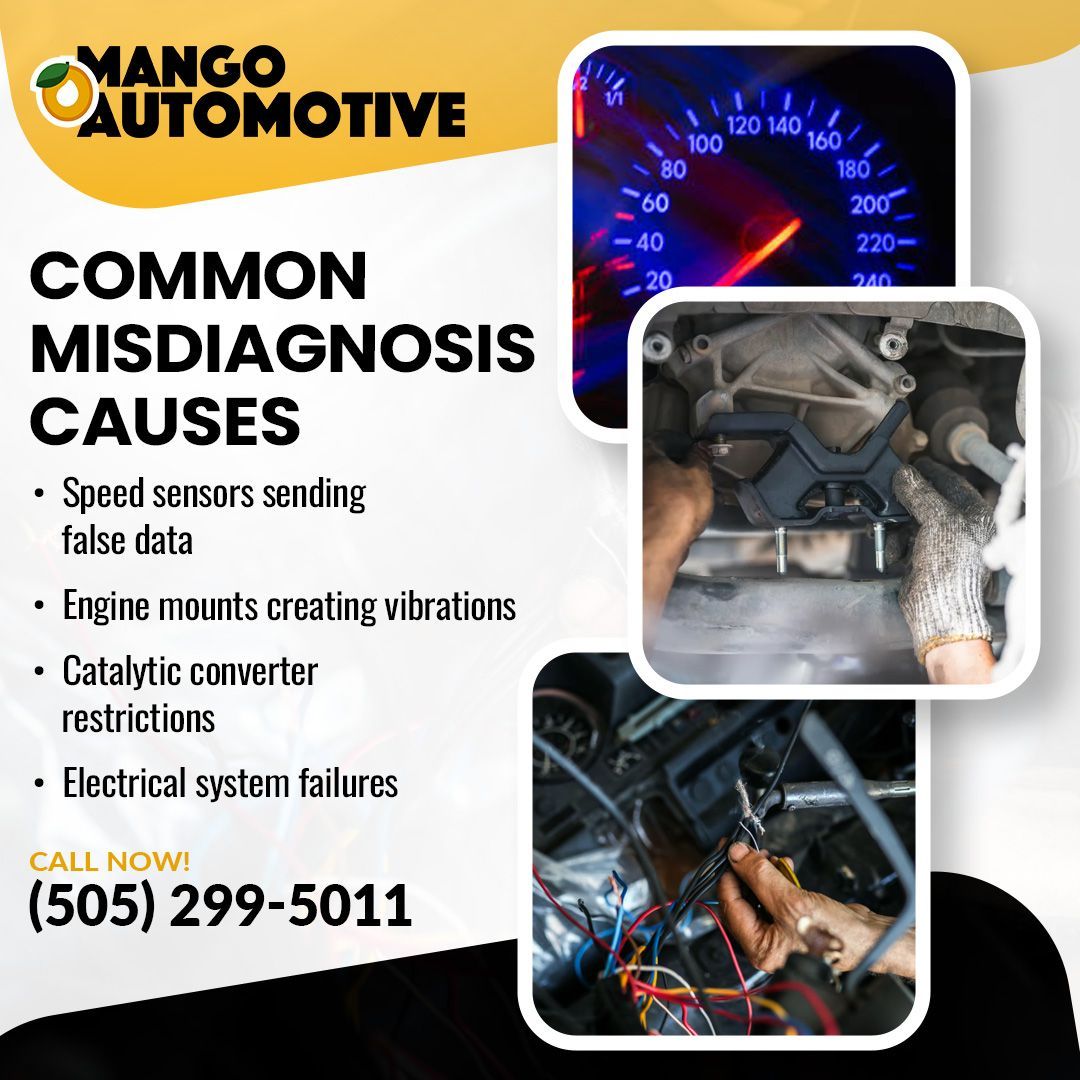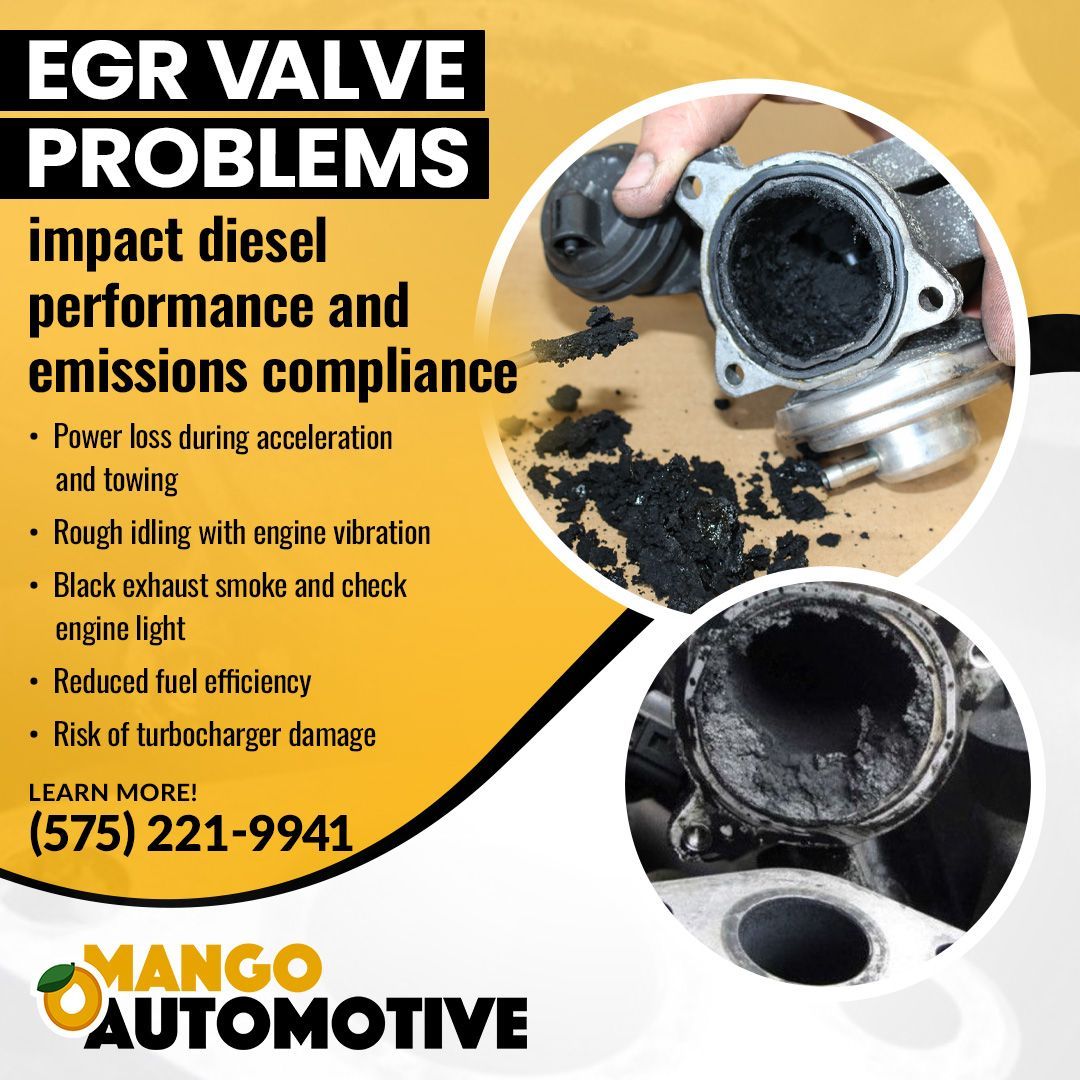Eagle Ranch Auto Repair: Understanding EV Maintenance Needs
Electric vehicles are becoming more common across Albuquerque, with more residents choosing them for their efficiency and lower environmental impact. While EVs eliminate many of the routine services associated with gasoline vehicles, they bring their own set of maintenance requirements. Drivers often face questions about how often their EV should be serviced, what types of repairs are unique to electric drivetrains, and where to find a qualified shop with the right tools and training. Without clear guidance, many owners risk overlooking critical maintenance that directly affects vehicle performance and long-term reliability.
For local drivers, the challenge is that not every
auto repair shop in Albuquerque is equipped to handle EV-specific needs. From specialized battery diagnostics to software updates and thermal management systems, electric vehicles demand knowledge and equipment beyond standard automotive repair. At
Mango Automotive, our focus is on bridging that gap for the community. We provide expert EV care alongside traditional auto repair services, helping owners protect their investment while ensuring their vehicles remain safe, efficient, and road-ready.
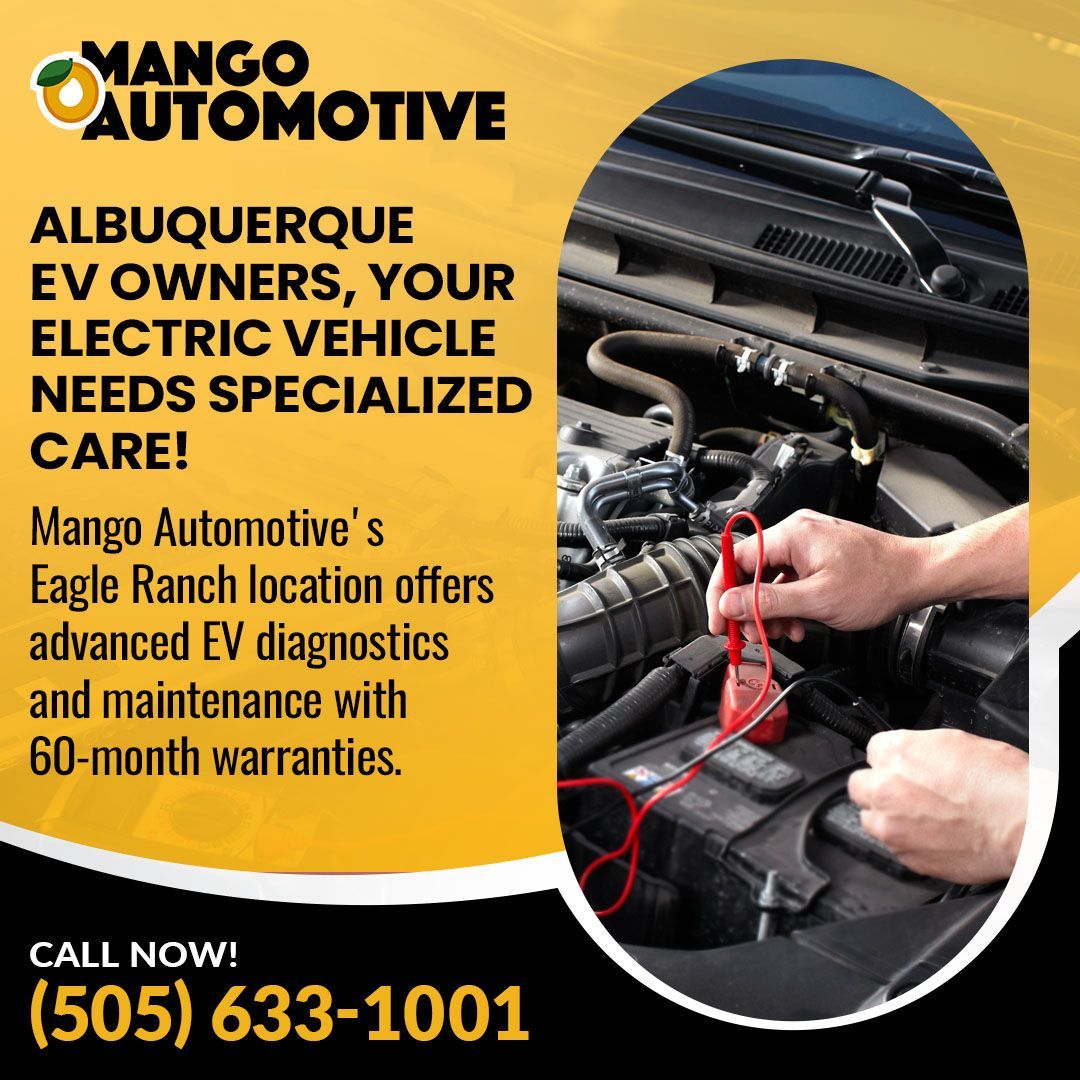
How EVs Are Changing Everyday Auto Repair
EV ownership is growing in Albuquerque as more drivers choose electric vehicles for daily use. Local adoption is driven by lower fuel costs, state incentives, and the availability of public charging stations across the city. According to the U.S. Department of Energy, New Mexico has seen steady growth in EV registrations, with Albuquerque leading as one of the state’s highest-concentration areas. This increase means that more residents are seeking auto repair services that address electric vehicle issues.
What makes EV maintenance different from traditional automotive repair
EV maintenance is different because electric vehicles rely on batteries, electric motors, and software instead of engines. Unlike gas-powered cars, EVs do not need oil changes, spark plugs, or exhaust system repairs. Instead, maintenance focuses on high-voltage components, cooling systems, and electrical diagnostics.
For example, an EV driver may notice reduced range due to battery degradation. This requires specialized testing equipment that most general auto repair shops do not have. Another driver might face error codes related to the charging system, which requires knowledge of EV software and wiring. Even basic needs like tire rotations take on added importance since EVs are heavier and can wear tires faster.
These differences highlight why dedicated
Eagle Ranch auto repair providers, like Mango Automotive, invest in training and advanced tools. The right expertise makes sure that both traditional maintenance and EV-specific needs are handled properly, reducing risks for Albuquerque drivers.
Common Misconceptions About EV Maintenance
“EVs Don’t Need Service” – Why That’s Not True
EVs still need regular service, even without oil changes or spark plugs. While electric drivetrains eliminate some maintenance, systems like brakes, tires, batteries, and software require ongoing attention. Neglecting these areas can reduce safety, efficiency, and long-term performance. For example, many Albuquerque drivers mistakenly delay EV checkups because there is no engine oil to replace. Yet EVs rely on cooling fluids that prevent overheating, and those must be inspected and replaced periodically.
The Hidden Wear on Brakes and Tires
Brakes and tires wear differently on EVs due to regenerative braking and heavier vehicle weight. While regenerative systems extend brake pad life, components like rotors can still corrode or warp without routine inspections.
Tires are another concern. EVs can wear through tires about
20% faster than gas-powered vehicles due to instant torque and added weight from large battery packs. An Albuquerque commuter using an EV daily may notice uneven tread after fewer miles compared to a gasoline sedan. Regular tire rotations and alignments help extend tire life and improve efficiency.
Battery Life Myths vs. Reality
EV batteries do not last forever, but most provide reliable service for many years. The average lifespan of electric vehicle (EV) batteries is generally in the range of 10 to 20 years under normal use conditions. Most EV batteries retain 80–90% of their capacity even after 100,000–200,000 miles.
However, factors like frequent fast charging, extreme heat, or skipping diagnostics can shorten the lifespan. Local EV drivers in Albuquerque benefit from professional battery health checks at auto repair shops like Mango Automotive, where technicians track charging efficiency, temperature control, and overall performance.
Brakes, tires, and batteries each affect one another, and a missed inspection in one area can lead to bigger issues across the vehicle.
Core Areas of EV Care Drivers Should Know
Battery Diagnostics and Lifespan Management
EV batteries require routine diagnostics to track health and extend lifespan. These diagnostic tests measure capacity, charging efficiency, and temperature control. Regular checks help Albuquerque drivers avoid unexpected failures and maintain a consistent driving range. Improper charging habits or high heat can reduce battery performance.
Signs Your EV Battery Needs Professional Attention
Reduced range, longer charging times, or warning lights signal battery issues. These symptoms indicate the battery is no longer holding or distributing power as designed. Professional diagnostics at a trusted auto repair shop can identify whether the issue is a software miscalibration, a cooling problem, or battery degradation. Early detection helps avoid full replacement costs, which can be substantial.
At Mango Automotive, our technicians use advanced diagnostic tools to detect early warning signs, protecting the driver’s investment and ensuring reliable operation.
Motor and Drivetrain Service
EV motors and drivetrains require inspections to maintain performance and efficiency. Unlike gasoline engines, electric motors have fewer moving parts but depend heavily on bearings, seals, and electrical connections.
Issues such as unusual vibrations or reduced acceleration need timely attention at an automotive repair shop to prevent more expensive damage. Because EVs apply instant torque, even minor drivetrain issues can escalate quickly if ignored.
Protecting Performance Through Regular Inspections
Consistent inspections help prevent small issues from developing into larger drivetrain problems. Regular service intervals keep high-voltage connections safe, protect moving parts, and ensure smooth operation.
For example, an EV used daily for commuting in Albuquerque might require more frequent inspections than a lightly used weekend car. Scheduling regular checks provides a preventive approach that supports performance while reducing unexpected repair costs.
Thermal Management Systems
Cooling systems regulate battery and motor temperatures to prevent overheating. These systems use liquid coolant that must be serviced periodically for efficiency and safety. Coolant protects both the battery and the motor from heat damage. Without proper circulation, components can degrade faster and lose efficiency.
Skipping coolant checks can result in overheating, which shortens battery life or triggers a vehicle shutdown. By maintaining coolant systems, Mango Automotive helps drivers avoid these risks and prolong the service life of high-value EV components.
Software and Electrical Systems in Modern EVs
Updates That Affect Safety and Range
Software updates improve EV performance, efficiency, and safety features. They can adjust battery management, fix system bugs, or add driver-assist functions. Skipping updates may reduce range or cause malfunctions. At Mango Automotive, our auto repair technicians support drivers by verifying updates and ensuring that vehicle systems function properly after installation.
Troubleshooting Error Codes and Alerts
Error codes signal specific issues in an EV’s electrical system. These alerts may relate to charging, battery cooling, or sensor failures. For example, a faulty cooling pump can trigger a “service battery” message. A worn connector can cause a charging system alert. Specialized diagnostic tools are required to interpret these codes accurately. Our Albuquerque auto repair shop is equipped to interpret these codes and address them quickly.
How Electrical Diagnostics Differ From Gas Vehicles
EV diagnostics focus on high-voltage systems and software rather than fuel and engine components. This requires specialized equipment and training. A traditional auto repair shop might use tools to test spark plugs and fuel injectors in gasoline cars. In contrast, EV diagnostics involve scanning battery modules, inverters, and control software.
An Albuquerque commuter with a hybrid vehicle may need both conventional engine checks and EV battery scans during the same service. Our Eagle Ranch auto repair shop bridges this gap with technicians trained in both areas, giving local drivers complete service under one roof.
Traditional Services That Still Apply to EVs
Suspension and Alignment for Heavier Vehicles
EV suspensions and alignments need closer attention because electric vehicles weigh more than gasoline cars. The added battery weight places extra stress on shocks, struts, and steering components.
Tire Maintenance for Even Wear and Efficiency
EV tires wear faster due to instant torque and added weight. Regular rotations and inspections are needed to extend tire life and improve energy efficiency. Tire rotation every 5,000–7,500 miles and pressure check can maintain both safety and range.
Cabin Air and HVAC System Care
EVs require HVAC and cabin air filter service to maintain comfort and air quality. These systems also play a role in regulating battery temperature. A dirty filter can restrict airflow, forcing the HVAC system to work harder and reducing driving range.
Extreme heat in Albuquerque summers can also strain the air conditioning system, which shares components with the battery cooling circuit. Replacing filters and servicing the HVAC prevents both comfort issues and unnecessary energy loss.
Challenges EV Owners Face Without the Right Shop
Limited Repair Options in Some Areas
EV repair options are limited because not all auto repair shops are equipped for electric vehicles. Many shops still focus on gasoline models and lack the training or diagnostic tools for EV systems. In Albuquerque, Mango Automotive addresses this gap by offering automotive repair services for EVs, hybrids, and traditional vehicles under one roof.
Risks of Untrained Technicians Working on EVs
Untrained technicians can cause safety risks and costly mistakes on EVs. High-voltage systems require special handling that differs from gasoline vehicles. For instance, a mechanic unfamiliar with EV cooling systems might miss a small leak that could lead to overheating and battery damage.
Another risk is improper handling of high-voltage wiring, which can create hazards for both the technician and the vehicle. At Mango Automotive, our Eagle Ranch auto repair technicians have received EV-specific training, which reduces risks and ensures accurate repairs.
The Value of Local Expertise in Albuquerque
Local EV expertise helps drivers access faster, more reliable service. A shop that understands Albuquerque’s climate and driving conditions can provide maintenance tailored to the area. For example, high summer temperatures in Albuquerque put more stress on EV cooling systems, while city stop-and-go driving affects brake components.
We combine EV training with knowledge of local conditions, giving drivers confidence that their vehicles are maintained for both performance and safety. This local expertise makes Mango Automotive a trusted choice for
Albuquerque auto repair.
Mango Automotive’s Approach to EV Repair in Albuquerque
Specialized Training for EV Systems
Our technicians receive specialized EV training to work safely on high-voltage systems. This training covers battery diagnostics, thermal management, and drivetrain service. Our team uses manufacturer-recommended procedures instead of relying on trial and error. This approach prevents mistakes and shortens repair time compared to general auto repair shops that may lack EV experience.
Advanced Equipment for Diagnostics and Service
EV repairs at our Eagle Ranch auto repair shop rely on advanced diagnostic tools designed for electric vehicles. These tools identify faults in battery health, charging systems, and onboard electronics. Our automotive repair team uses manufacturer-compatible scanners and high-voltage safety equipment to deliver accurate results.
60-month/60,000-mile Warranty Coverage for Extra Confidence
We provide extended warranty coverage to give EV owners added confidence in repairs. This protection goes beyond basic service guarantees found in many auto repair shops. This policy reflects our commitment to standing behind our Albuquerque auto repair services.
Amenities That Make the Experience Easier for Customers
We offer customer-focused amenities that make EV service more convenient. These include shuttle options, comfortable waiting areas, and clear service updates. We also provide text or phone updates during service, reducing stress for customers who depend on their vehicles for daily use in Albuquerque.
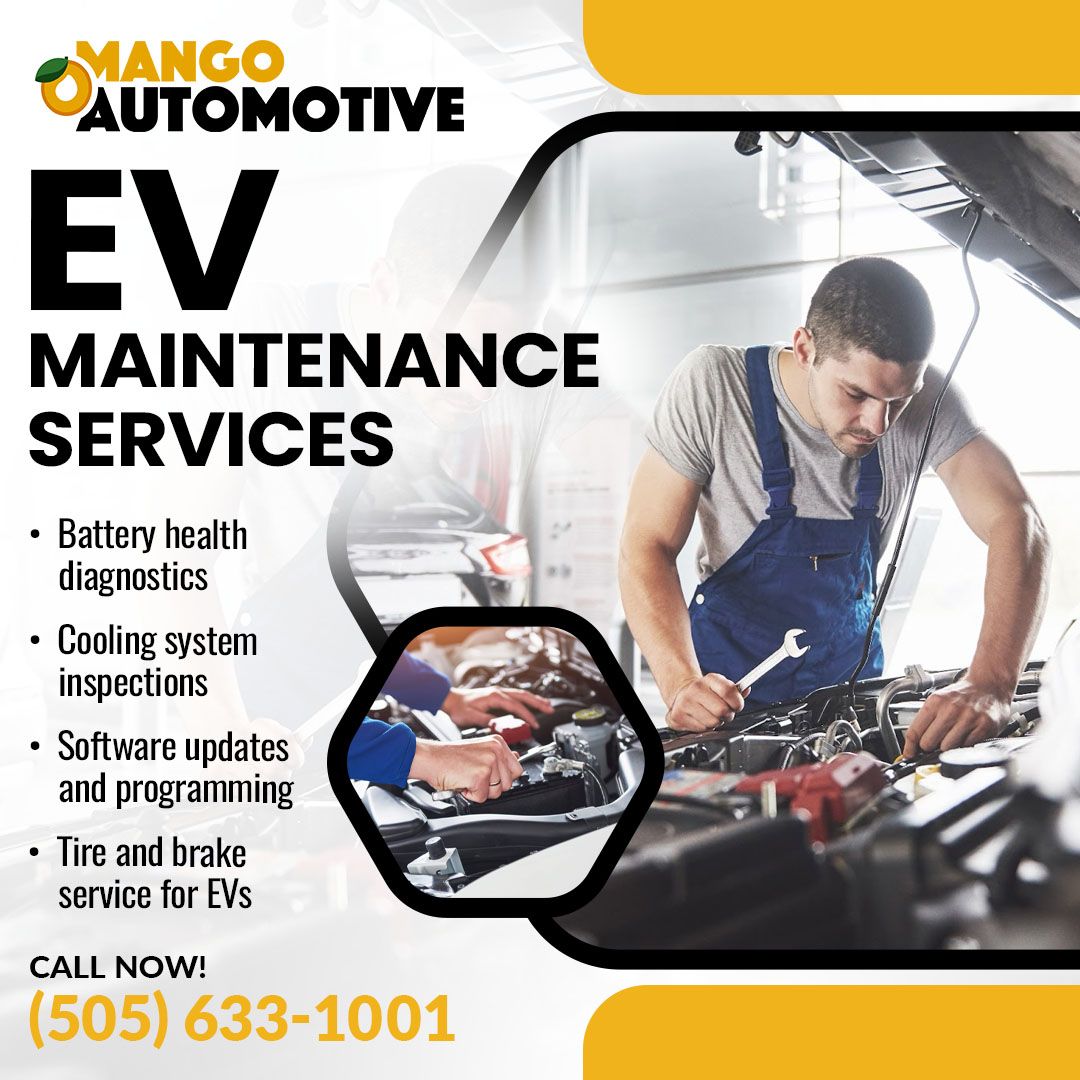
EV Maintenance and Repair Services in Albuquerque You Can Rely On
EVs require specialized care, and Albuquerque drivers need a trusted shop that understands both the technology and local conditions. With trained technicians, advanced diagnostic tools, and extended warranty coverage, we offer more than basic service. Whether you need routine maintenance or repairs on complex electrical systems, we are prepared to support your EV for the long road ahead.
Call Mango Automotive at
(505) 633-1001 to schedule service or visit one of our Albuquerque auto repair locations. Our team is ready to handle everything from battery diagnostics to suspension care, keeping your EV safe, efficient, and reliable.
